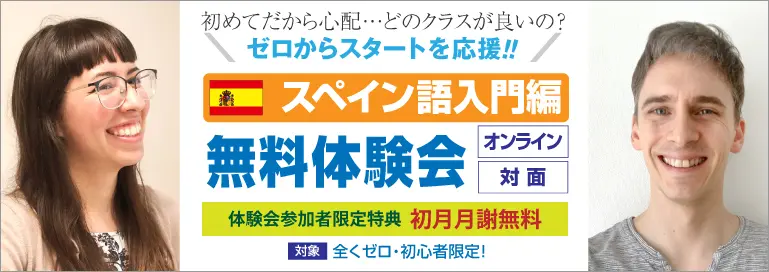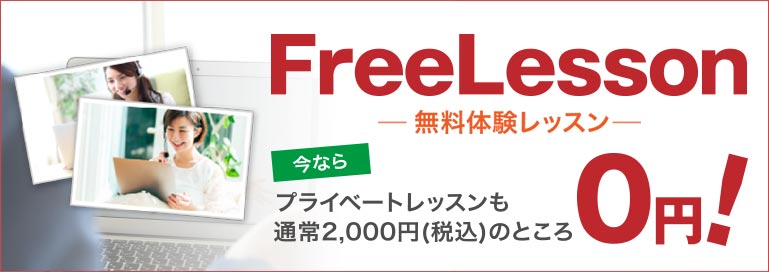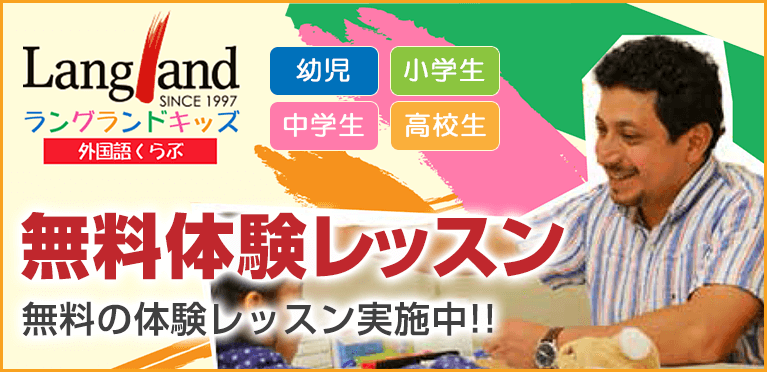WaiWaiブログ
Le passe compose des verbes irreguliers
2012/12/07
Le passe compose des verbes irreguliers
Bonjour, voyons le passe compose des verbes irreguliers.
Aujourd’hui, 5 verbes : boire, faire, lire, prendre et attendre.
主語のJeで例文を見てみましょう。
Boire ボアール (飲む)
過去形: J’ai bu ジェ ブ
J’ai bu du the ce matin.
私は今朝お茶を飲みました。
Faire フェール (する)
過去形: J’ai fait ジェ フェ
J’ai fait de la natation hier. 
私は昨日水泳をしました。
Lire リール (読む)
過去形: J’ai lu ジェ ル
J’ai lu le journal dans un cafe.
私はカフェで新聞をを読みました。
Prendre プランドゥル (取る、乗る)
過去形: J’ai pris ジェ プリ
J’ai pris le train pour aller au bureau
会社に行くのに電車に乗りました。
Attendre アタンドゥル (待つ)
過去形: J’ai attendu ジェ アタンデュ
J’ai attendu ma mere devant la poste.
郵便局の前でお母さんを待っていました。
———————————————————————————————————————————
C’est bientôt Noel.
En France, la façon dont on fete Noel varie parfois d'une region a l'autre mais la plupart des Français decorent la maison avec un sapin de Noel et une creche.
Durant les Fetes, on mange en famille de la volaille, par exemple de la dinde, on mange aussi des marrons, des huitres et de la charcuterie. Il n’y a pas vraiment de regles particulieres mais en dessert tout le monde choisit un gateau roule appele la "buche de Noel".
Les adultes s’echangent des cadeaux le soir de la fete et les petits enfants recoivent leurs cadeaux la nuit de Noel qu’ils decouvriront le matin.
Joyeux Noel a tous !
Fabien
スペインと日本の食事の習慣の違い (Diferencias en las costumbres al comer entre Japón y España)
2012/12/04
今回、食事の習慣に関して、日本とスペインのいくつかの違いについて話しましょう。
すする
スープ、麺、熱い飲み物、どれにしても、スペインではとにかくすすることは(特に音をたててすすること)とてもだめです。スープはスプーンで食べて、口に入れても焼けどしないくらい冷めるまで待ちます。長い麺はスパゲッティーぐらいしかありません。フォークに絡ませて、フォークの助けで口に入れるのです。

皿や小皿などは持ち上げる
皿類を手で取って持ち上げるのもNGです。スープなどの場合は、必要なら、頭をちょっと皿に近づけてもいいですが、あくまでもちょっとだけ。何をやっても、口元は絶対皿に当たらないのです。
皆そろって食べ始める
一昔まで皆一緒に食べ始めるのは正しいマナーでしたが、今はあまり大事ではないようです。特に、家族や親友の場合はあまり気にしなくても大丈夫です。
相手に飲み物を注いであげる
この習慣はまったくありません。いつも、自分で自分のコップに飲み物を注ぎます。なので、相手に注いでもらうのを待っていたら、時間の無駄です。相手に注いであげようとしたら、不思議に思われるだけです。相手のコップが空っぽになったら、そのままほっときましょう。
皿にある食べ物は何も残さずに全部食べる
これには、特にルールはないです。自宅、家族などなら好きなようにしてもよいでしょう。ま、確かに、残すより全部食べる方がいいのではないでしょうか。しかし、もし誰かのご馳走をもらうとき最後まで何も残さず食べると、礼儀正しいながらもピンチです!相手は「あっ、たぶん、足りなかったんじゃないか」と思って、また料理を盛ってくれます。これをも食べるとエンドレスの循環になる恐れがあります。この悪循環に入らないように、二つの方法があります:少し残して、「あ~、悪いけど、お腹いっぱい」と言うか、それとも全部食べて、おかわりを「ごめん、本当にもうこれ以上食べられないから」と硬く断る。前後は、ああ言いながら、手で皿をカバー(つまり、入らないおかわりから皿を守る)するのもいい作戦だと思います。
スパゲッティーは何で食べるか
フォークだけで食べます。スプーンは使いません。イタリアでも使わないと思います。日本だけの習慣のではないでしょうか?

アイスコーヒー、アイスティー
第一、スペインではティーはあまり飲みませんが、ティーにしても、コーヒーにしても、両方とも暑い飲み物として考えられているので、「アイス」版はありません。夏でも、コーヒーは暑いコーヒーを飲みます。冷たい飲み物がいいなら、ビールとか、ジュースとか、炭酸飲料などにするのです。どうしても「アイスコーヒー」「アイスティー」を注文するなら、普段、何かは出るんですが、店によっては何が出るのか不明です。
レストランやカフェでの水
レストランやカフェで水を頼むと、有料です。といっても、店や場合によって、「¿Me puede dar un vaso de agua?」と頼むと、無料でun vaso de agua del grifoがもらえるときもあります。
パン
パンはいわば日本のご飯のようで、自宅でもレストランでも食事と一緒にいつも出ます。好きな分だけ食べるのです。レストランの場合では基本的にパンが出て、食べてなくても会計に入ります。
エミリオ
Too many cars!
2012/11/30
You don't need a car to live in Tokyo. There are plenty of trains and subways to help you get from one place to another. I'm from Los Angeles, and unlike Tokyo, LA is a car city. Without a car, it is difficult to go back and forth to work or go shopping for groceries. Today, Los Angeles has a very big problem with too many cars on the road.
Los Angeles was designed for the car. Instead of living in crowded apartment buildings, people bought houses in the suburbs and a huge freeway system was built so they could drive to work. In fact, if the roads are not crowded, you can get to anywhere in Los Angeles in under 45 minutes. But the city grew bigger every year, and now there are not enough roads.
Cars became an important part of California life. Many people enjoy going for a drive along the Pacific coast or taking weekend trips to someplace outside of the city. Some people have a love affair with their cars. They enjoy spending time taking care of their cars and keeping them in good condition. The car also represents freedom because it allows you to go wherever you want to go. This mobility makes life very convenient.
But there are many problems with cars. They cause a lot of pollution. Not too long ago, Los Angeles had very poor air quality. The sky was usually brown instead of blue and it was difficult to breathe. On many days you couldn't see the mountains near the city because of the smog. (Smog is from "smoke" and "fog." It is the name of the air pollution caused by cars.) Today the air is much cleaner because companies improved the car engines so that they emit less pollution.
Another problem is that they are expensive to own. Car owners must pay money for gas, car insurance, parking and maintenance. Every year, they have to spend thousands of dollars just for the car. If the gas prices go up too high, money will be a problem for many people.
Cars are also dangerous. In 2010, more than 32,000 people died in America from traffic accidents. Also, car crashes are the leading cause of death for teenagers. Many people drive too fast and they don't pay attention to the road. Plus, a lot of drivers don't use good manners on the road. I think there should be more driver education to make the road a safer place.
But the biggest problem in Los Angeles is that there are too many cars! During rush hour, the traffic is very bad and it takes a very long time to get home after work. If there is an accident, the traffic jam will be even longer. Many of the ideas to reduce the number of cars on the road don't work and it is too expensive to build more freeways. And Los Angeles does not have a convenient public transportation system, so the car is the only option for commuting.
Many people get frustrated from driving in Los Angeles. Unfortunately, there are not many solutions. Maybe more people can use a computer and work from home. I think in the future, new cities should be designed so that people do not have to rely on the car to live. Please remember to always wear your seat belt when riding a car!
Vocabulary
Please look up these words:
suburb
mobility
pollution
emit
insurance
traffic jam
reduce
commute
frustrated
solution
rely
Babbo Natale (サンタクロース)
2012/11/26
文法のポイント
今月の文法は“il presente dei verbi regolari”動詞の現在形です!
イタリア語の動詞の原形は“-are”、“-ere”、“-ire”のいずれの語尾で終わっています。現在形の動詞は規則的に語尾変化する動詞と、不規則な変化をする動詞とに分かれています。
規則動詞は1つのパターンを覚えたら、同じ種類に属する規則動詞すべてに適用できます。
まず、3つの規則変化の語尾を見てみましょう。
単数形 –ARE -ERE -IRE (A型の活用) -IRE (A型の活用)
一人称 -O -O -O -ISCO
二人称 -I -I -I -ISCI
三人称 -A -E -E -ISCE
複数形
一人称 -IAMO -IAMO -IAMO -IAMO
二人称 -ATE -ETE -ITE -ITE
三人称 -ANO -ONO -ONO -ISCONO
-ARE動詞例:
l Mangiare (食べる): mangio una pizza margherita.(ピッツァマルゲリータを食べる)
l Studiare (勉強する): voi studiate l`italiano.(あなた達はイタリア語を勉強しています)
l Lavorare (働く): noi lavoriamo in banca.(私たちは銀行で働いています)
-ERE動詞例:
l Scrivere (書く) : scrivi una lettera.(君は手紙を書きます)
l Leggere (読む): loro leggono un libro(彼らは本を読みます)
l Vivere (住む、生きる): Maria vive a Milano(マリアさんはミラノに住んでいます)
-IRE動詞例:
l Dormire (寝る、眠る): noi dormiamo bene(私たちよく眠れます)
l Sentire(聞く、感じる): sento freddo(私は寒さを感じます)
l Capire(理解する、わかる): capisci l`inglese?(君は英語がわかりますか)

今月はサンタクロースの伝説について話しましょう!
La figura di Babbo Natale si basa su un personaggio cristiano medievale realmente esistito nel quarto secolo D.C. Si tratta di San Nicola, uomo nato da una ricca famiglia in Turchia e diventato poi vescovo della citta` di Myra.
Attorno all`anno 1000 i suoi resti vennero trafugati da alcuni cavalieri italiani e portati a Bari , di cui San Nicola e` il santo protettore, dove sono sono tuttora conservati.
Esistono in molti paesi varie leggende che lo vedono protagonista, come “portatore di doni” e cibi alle famiglie piu` povere, che si dice ricevessero i regali anonimamente attraverso i camini o le finestre.
Il nome inglese “Santa Claus” deriva dall`olandese “Sinterklass” e in principio e` stato utilizzato dagli olandesi immigrati negli Stati Uniti, ma la traduzione italiana moderna e`semplicemente BABBO NATALE.
Allora e` il momento di cominciare i preparativi per il Natale, una delle celebrazioni piu` importanti della tradizione italiana!

Al mese prossimo! (また来月に!)
オーストラリア留学体験記(4)
2012/11/20
中学・高校の学校生活についてですが、まず日本とは圧倒的に違うものが!!
入学式がありません!
『入学式』というのは日本特有のものかもしれないですね。それはそれで、日本の“けじめをつける”という文化の良さを感じることができました。
中学・高校もまず「オリエンテーション」で始まりました。初日に教室・ロッカー・施設の説明、タイムテーブルを受け取り…というのが普通の流れで、『式』というものはなく、とても不思議なスタートでした。
また中高一貫だったので、高校に上がった時は何も変わらなく…。もちろん制服もほとんど変わりありませんでした。
日本では「1年〇組」のように決まったメンバーがクラスとして1年間一緒に学習していきますが、メルボルンでは英語のクラス、数学のクラス、社会のクラス…全てメンバーがほとんど違います。また先生が教室に移動してきてくれるのではなく、生徒が自ら決まった時間に決まった教室へ向かうので、初めの頃は、どこにどの教室があるのか・・・探すのに必死でした(苦笑)
日本での大学のようなスタイルでした。

また、縦割りで”House”というものがあります。これは授業のクラスとは別のホームルームのメンバーのようなもの(?)です。
映画「ハリーポッター」をご存じの方ならイメージつきやすいかと思いますが、「ハリーポッター」では“寮”と呼ばれてました(正にそのものです!!)
私の学校ではオレンジ色のHouseがBoarding House(宿泊寮)で留学生や田舎から通いに来ている子たちが所属。
ちなみに私はホームステイだったので他の現地の子たちと同じくドラゴンがモチーフの緑色のHouseでした。他にも黄色、赤、黒、青のHouseがありました。
House対抗のHouse Cupというものが1年に1度行われ(これもハリーポッターにありましたね)その年の優勝を狙います。一年間でHouse対抗で様々なイベントがあり(スピーチ、ディベート、オリンピックパークを貸し切っての運動会、水泳大会など)それぞれのイベントでポイントを稼ぎ、合計点を競います。残念ながら私が通っていた6年間で、私のHouseがHouse Cupで優勝することはなかったですが、毎年結果発表の日はとても盛り上がりました。
日本では経験のできないような学校生活でしたが、もちろんこれだけではありません!!!
私の学校では毎年サバイバルキャンプのようなものがあり・・・その内容もまた想像以上でした。
次回はキャンプについてお話します!
新着情報
-
クリスマスの歌
2019/12/12 -
“英語&フランス語で話そう!!”報告♪
2019/12/12 -
Langland Christmas Party 2014 の様子をお届けします♪
2014/12/09 -
TOEIC SW IPテスト 9月からスタートしました!
2014/09/22 -
DELE B1検定対策コース:渋谷校で9/16(火)よりスタート!
2014/09/16
バックナンバー




















